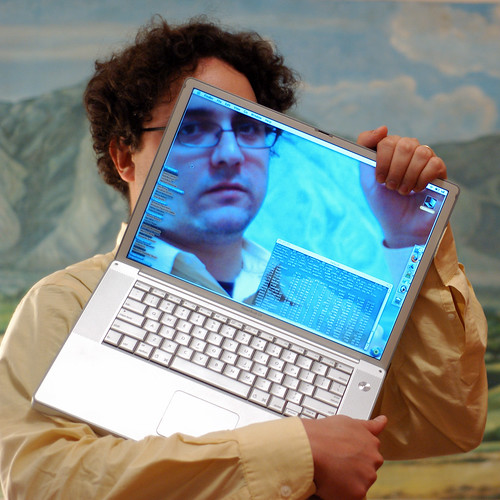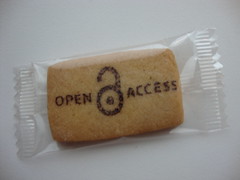Gold… for sale!
The current discussions surrounding Open Access have left me somehow perplexed, mainly because of the turn the debate has taken and which is, in my opinion, a major setback.
So to start with, I think it is useful to remind ourselves of the original purpose of Open Access and where it all started… because sometimes we lose sight of that initial purpose which, in this case, is so, so important.
The Open Access term was first used by the Budapest Open Access Initiative (BOAI) in 2001 to campaign for the accessibility of knowledge for a wider community. And in their website they explain the need for Open Access (OA) by stating that
By “open access” to [peer-reviewed research literature], we mean its free availability on the public internet, permitting any users to read, download, copy, distribute, print, search, or link to the full texts of these articles, crawl them for indexing, pass them as data to software, or use them for any other lawful purpose, without financial, legal, or technical barriers other than those inseparable from gaining access to the internet itself. The only constraint on reproduction and distribution, and the only role for copyright in this domain, should be to give authors control over the integrity of their work and the right to be properly acknowledged and cited.
This because:
“scientists and scholars…publish the fruits of their research in scholarly journals without payment” and “without expectation of payment.” In addition, scholars typically participate in peer review as referees and editors without expectation of payment. Yet more often than not, access barriers to peer-reviewed research literature remain firmly in place, for the benefit of intermediaries rather than authors, referees, or editors, and at the expense of research, researchers, and research institutions.
So, in part OA came to value researchers’ work by giving it the potential of a much larger audience, and in part it came to do what is morally expected of public funded institutions, i.e, that the outcomes they produce benefit the public good. But we all know that these ideas (Or are they ideals?) cannot be materialised from day to night when there are other (commercial) players involved in the game.
Around the 1960s/70s academic journals started to gain the attention of commercial scholarly publishers who began acquiring the already established, high-quality journals run by non-profit scholarly societies. With research journals published by commercial publishers, dissemination of academic work is inevitably impacted by the provision of knowledge as a commodity for sale. And this has become even more visible now with the struggle to implement OA and the different interpretations different players have of it.
 Academia not only yielded the monopoly of knowledge dissemination to publishing houses, but they also supported, even if implicitly, the rather atypical business that publishing houses grew from it. If academic publishing was already a peculiar business before the emergence of the web, the fact that it persists now is even more extraordinary. Simply put, the business model of academic publications is one in which one pays to work, not only once, but twice, and now apparently perhaps even thrice! Institutions pay academics to write research papers that are published in journals which institutions also pay to have access to!! And now apparently there is also the added option of paying an additional fee to have the work of their academics made free online. And this is what the publishing houses are currently calling the Gold Route to Open Access.
Academia not only yielded the monopoly of knowledge dissemination to publishing houses, but they also supported, even if implicitly, the rather atypical business that publishing houses grew from it. If academic publishing was already a peculiar business before the emergence of the web, the fact that it persists now is even more extraordinary. Simply put, the business model of academic publications is one in which one pays to work, not only once, but twice, and now apparently perhaps even thrice! Institutions pay academics to write research papers that are published in journals which institutions also pay to have access to!! And now apparently there is also the added option of paying an additional fee to have the work of their academics made free online. And this is what the publishing houses are currently calling the Gold Route to Open Access.
This is not my interpretation of what the Gold Route OA option is, nor what BOIA’s statement hints at. However, I do recognise that the language used can lead to different interpretations. When BOIA put forward two primary strategies for OA:
OA through repositories (also called “green OA”) and OA through journals (also called “gold OA”)
they did not specify what an OA journal should be. It is unclear from their statement if it should include a no-fee policy for authors or not. That has given publishing houses room to play. As such, their interpretation of Gold Route to OA includes a fee. It’s another gold mine for them; one I am not sure academia will be able to afford. And this is where I see institutions and researchers backing down from the OA Movement because it is costing them even more.
Maybe it is high time that academic institutions regained control of knowledge publication. Research funding bodies and researchers may want to support and campaign for no-fee open access journals (there are quite a few out there already, so why not exploit the web in that way and use our own time to free our own knowledge). Otherwise, I fear that the push for the current interpretation of “Gold Route OA” will generate a even wider gap between different research institutions given that their economic power is already so uneven.









